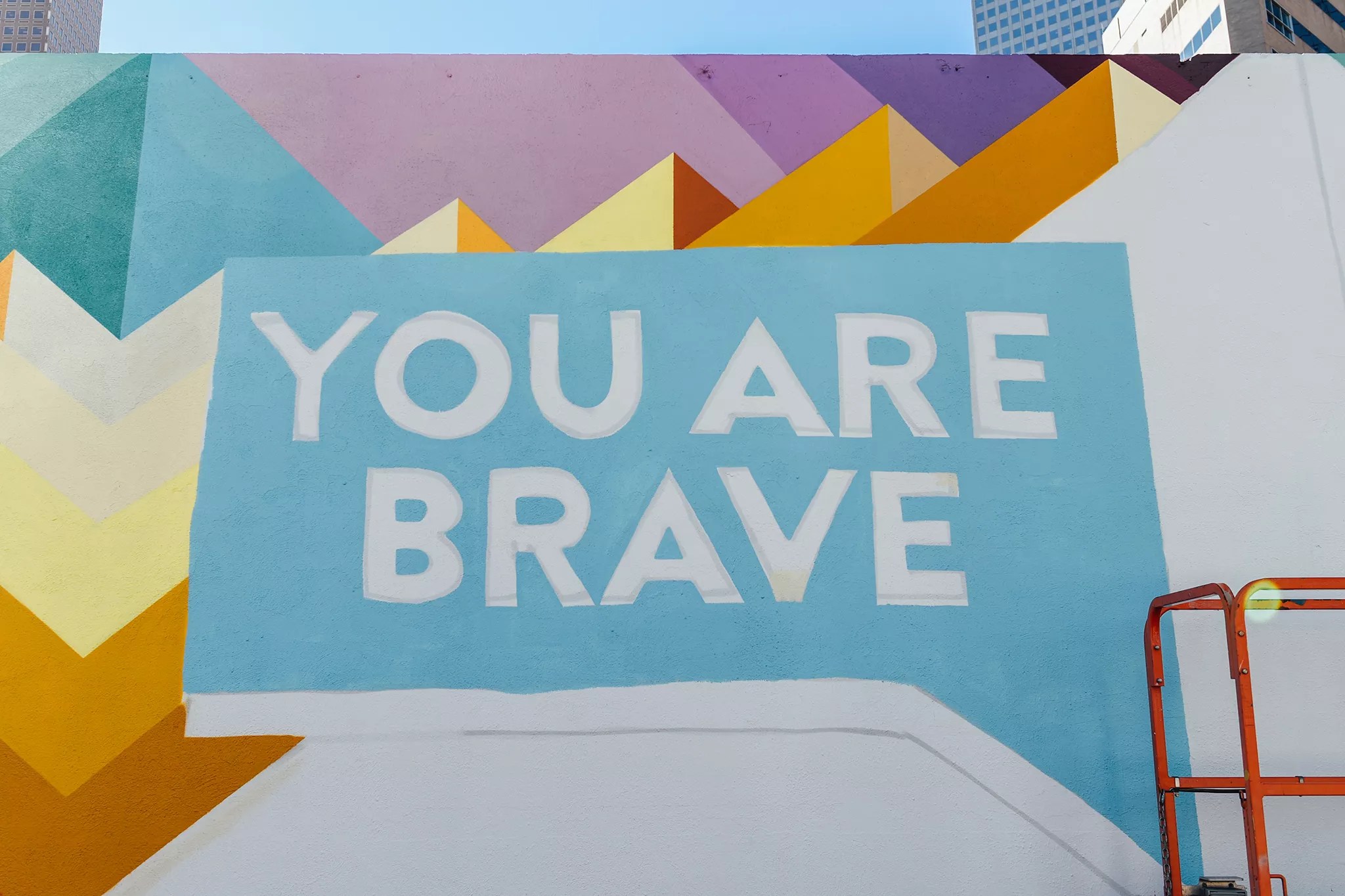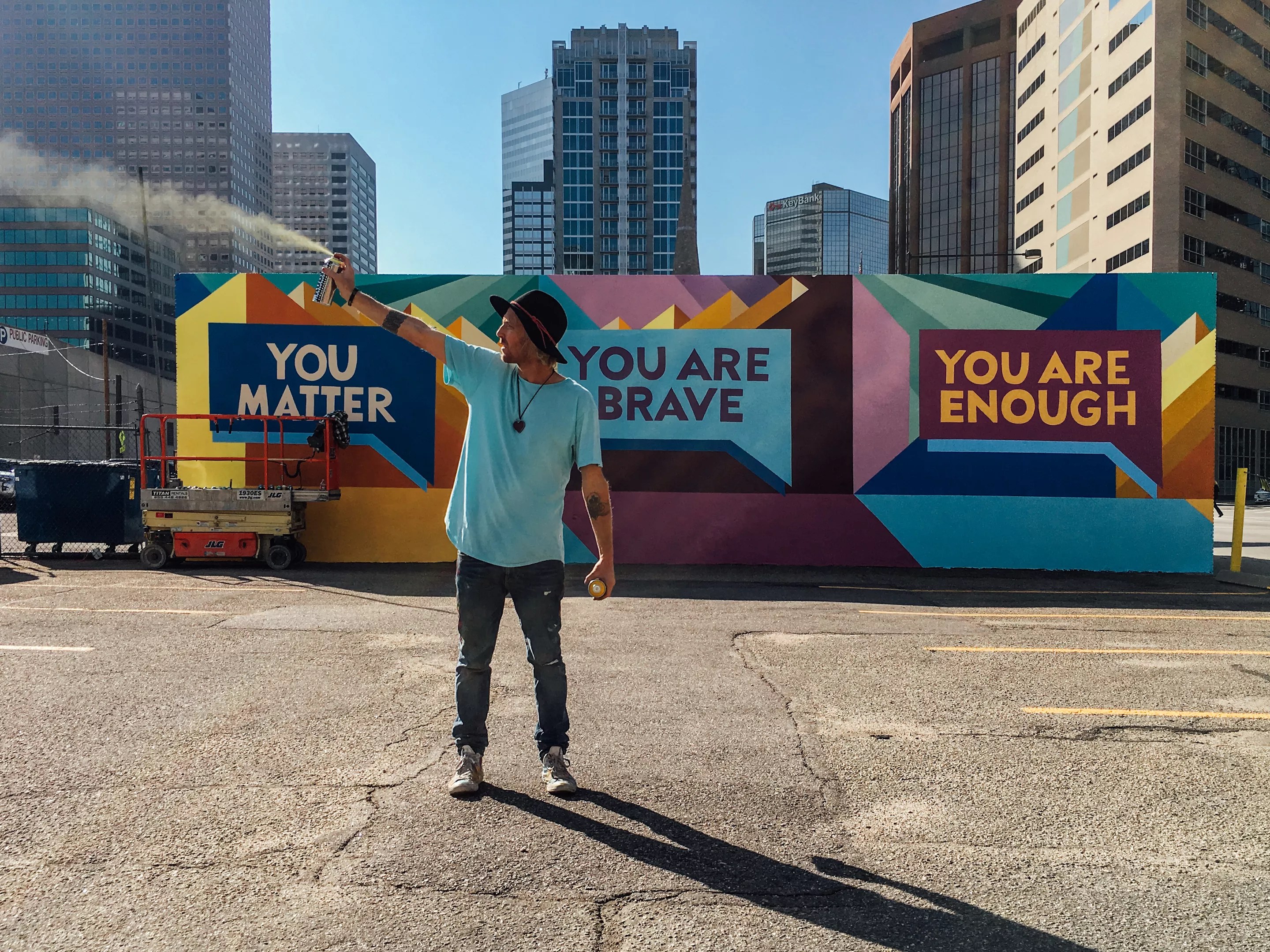
Kenzie Bruce

Audio By Carbonatix
Driving south on Broadway downtown, you might get an unexpected confidence boost when you see a mural that reads, “You matter. You are brave. You are enough.”
Kaiser Permanente Colorado hopes those words will start conversations about mental health. As a part of its Find Your Words campaign, Kaiser organized a Words of Hope mural installation at 19th and Broadway with those encouraging phrases.
Find Your Words is a service that encourages people suffering from depression or who know someone dealing with it to find the courage to talk. The murals take that conversation a step further, says Kaiser Permanente’s Nicholas Roper: “These murals make mental health relatable and approachable for the community to come and take photos to share on social media.”

“We’re trying to drive for messaging that says, ‘If you see a kid in crisis, don’t label them a bad kid.’ Something is going on. We can’t isolate or abandon that child,” says Ned Breslin, CEO of Tennyson Center for Children.
Kenzie Bruce
This year, make your gift count –
Invest in local news that matters.
Our work is funded by readers like you who make voluntary gifts because they value our work and want to see it continue. Make a contribution today to help us reach our $50,000 goal!
In a time when social media is at the heart of tragedies involving mental health, the artists who painted the mural hope to use these images across platforms to unite rather than isolate. The project comes just after World Mental Health Day and recent teen suicides in Arapahoe County.
The idea for using art in the project began in Portland, Oregon, in December 2016; Kaiser is funding another mural in southern Colorado.
In Denver, local artists Pat Milbery and Jason Graves led the painting. Going in, Milbery says, he knew this was going to be heavy. “When I was twelve, my thirteen-year-old cousin took his own life. It made me have an interest in gaining an awareness into well-being, attitude and spirit,” Milbery explains. “I knew this project would evoke current and past emotions, and Jason and I knew we’d need to apply the message of bravery and openness to ourselves during this.”
Community organizations such as the Tennyson Center for Children and Rise Above Colorado were also invited to be part of the conversation.
“Kids who have struggled with mental health tend to carry enormous shame and are laid into by society: by teachers, by schools, by other kids,” says Ned Breslin, CEO of Tennyson Center for Children. “Sure, it might not be intentional, but it undermines a kid’s ability to recover.” Students from high schools in Highlands Ranch and Littleton were also invited to participate in the dialogue.

“What we’re hoping through this mural is that it’s a confidence-booster and self-worth piece. There aren’t a lot of those out there. We could all use more of that on a daily basis,” says Pat Milbery.
Berk Visual
Just in the first days of creating the mural, Milbery says, many people have stopped their cars to give the artists hugs and share personal stories.
“This is reaching people at a different depth. When we were painting, some younger kids were helping, and one dripped paint and got down about it. I was like, ‘No, no, no! This is a metaphor. We can figure out how to fix it, how to adapt and make it better,'” Milbery says. “We all make mistakes; it’s just being brave enough to fix them.”